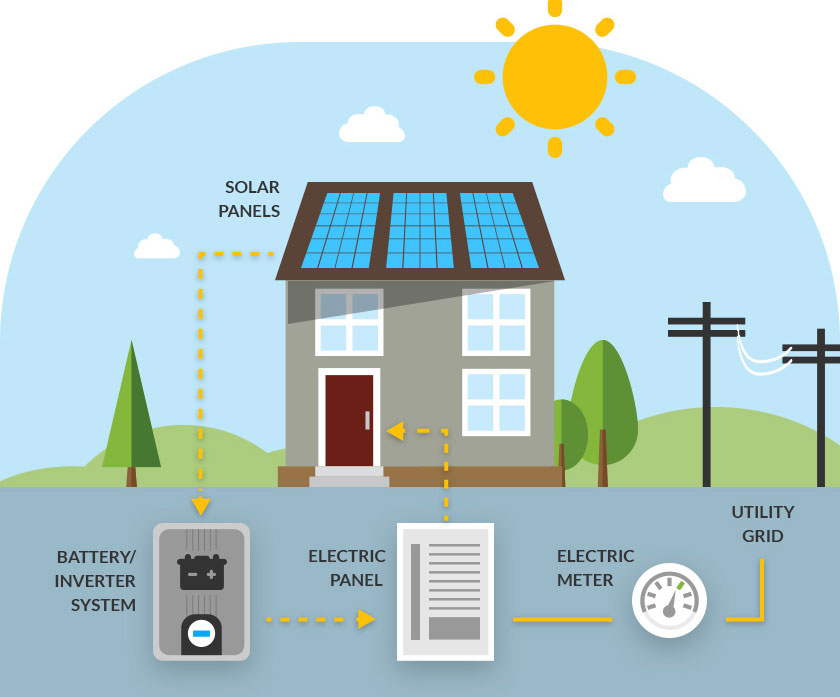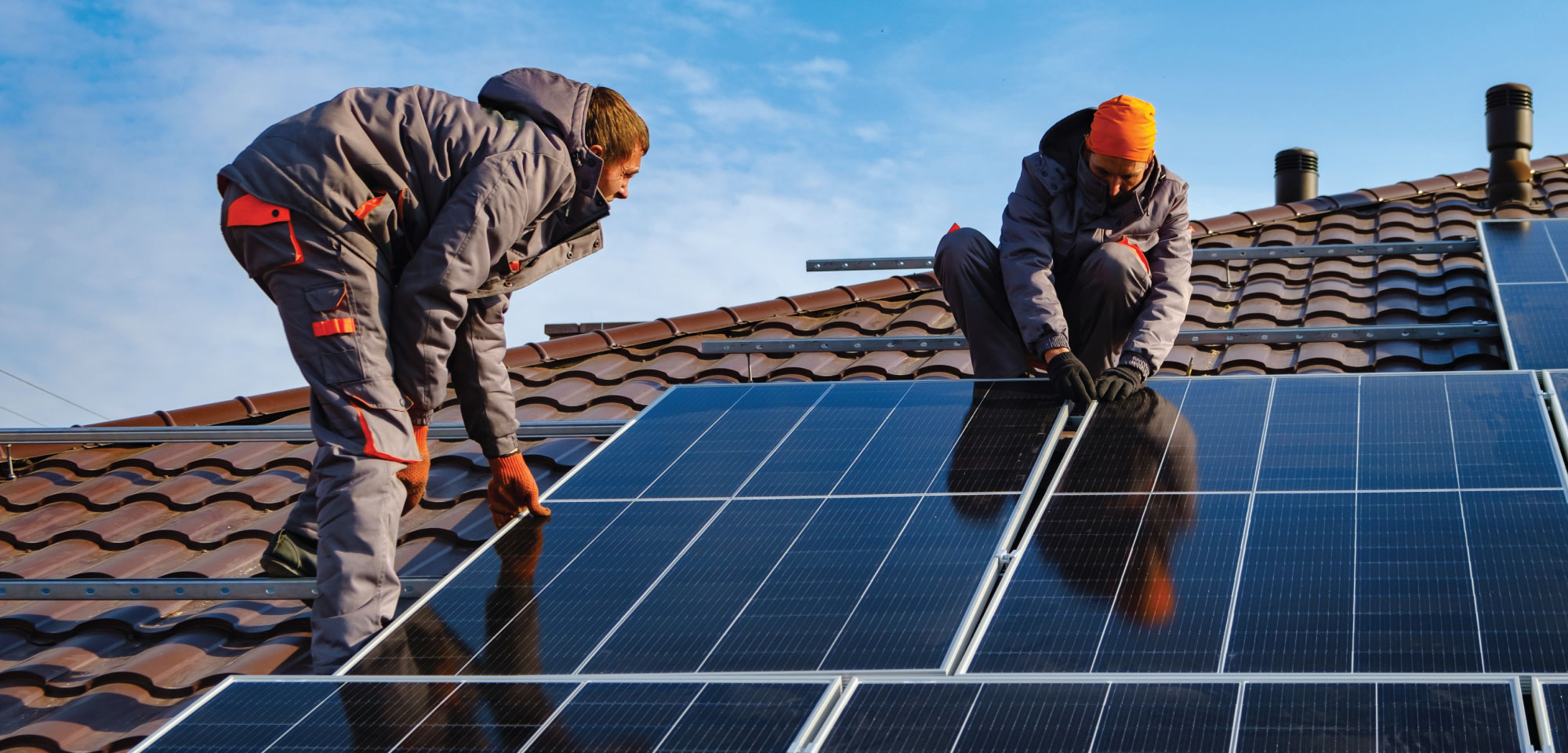All about Solar Companies In Virginia
All about Solar Companies In Virginia
Blog Article
Virginia SREC Program: Lumina Solar Concentrates On Offering Advanced Photovoltaic Solutions For Houses And Businesses
History and Establishing
Have you ever questioned how a photovoltaic panel business springs from a mere stimulate of inspiration into a powerhouse of renewable resource? It frequently starts with a vision-- one fueled by a mix of development, decision, and a pinch of serendipity. The journey of lots of solar companies mirrors the advancement of the innovation itself: from bulky, inefficient panels to smooth, high-efficiency marvels utilizing the sun's bounty.
The Early Days
In the late 20th century, when solar power was still a specific niche concept, leaders planted seeds for what would become a global movement. Imagine a small workshop filled with curious engineers, relentlessly try out photovoltaic cells. Their enthusiasm was palpable, often driven by a desire to combat climate change and reduce reliance on nonrenewable fuel sources.
One such anecdote has to do with a founder who, influenced by an outdoor camping journey, realized that even in remote locations, the sun could power essential devices. This easy observation triggered a business's mission to democratize access to clean energy.
Founding Principles

- Development: Continually pushing the borders of solar innovation to improve efficiency and toughness.
- Sustainability: Dedicating to environmentally friendly production and minimizing carbon footprints.
- Availability: Making renewable resource services cost effective and useful for everyday users.
Turning points in Growth
| Year | Key Event |
|---|---|
| 1985 | Company established in a small garage, concentrating on research study and development. |
| 1995 | Business solar panel product introduced, gaining local attention. |
| 2005 | Broadened to global markets, embracing global sustainable energy objectives. |
| 2015 | Introduced advanced photovoltaic panel technology with improved energy conversion. |
Isn't it fascinating how these incremental actions, frequently overlooked, form the energy landscape today? The solar panel business story is not almost innovation; it's about a ruthless mission for a brighter, cleaner future.

Developments in Photovoltaic Panel Technologies
Ever seen how some solar panels shine brighter and last longer? It's not magic; it's the science of photovoltaic performance. Modern solar panel business invest heavily in innovations like bifacial cells, which record sunshine from both sides, improving energy harvest without expanding roofing space. Have you ever wondered why some panels perform better on cloudy days? That's due to advances in thin-film solar innovation, which grows under diffused light conditions.
Item Variations Tailored to Special Requirements
One size never fits all. Photovoltaic panel suppliers now provide:
- Monocrystalline panels for maximum performance and sleek aesthetic appeals, suitable for space-constrained roofs.
- Polycrystalline panels, which use a cost-efficient alternative without sacrificing excessive output.
- Building-integrated photovoltaics (BIPV), merging solar tech flawlessly into architectural aspects like windows and exteriors.
Choosing the best product isn't almost upfront expense; it has to do with matching your environment, energy goals, and long-term savings. Homes shaded by trees need panels that stand out in low-light situations, something many ignore till energy costs climb unexpectedly.
Technical Tips for Ideal Choice
- Examine the temperature level coefficient-- lower values mean panels lose less effectiveness on hot days.
- Try to find panels with boosted anti-reflective finishes to take full advantage of light absorption.
- Consider the panel's service warranty not just for problems, however for ensured power output over decades.
- Do not underestimate the significance of the inverter innovation paired with the panels; it can make or break your system's efficiency.
Beyond Panels: Emerging Trends
Envision solar panels that adjust their angle immediately to chase after the sun-- tracking systems are becoming more accessible, increasing yield significantly. Or solar tiles that mix invisibly into your roofline, transforming your home into a silent, self-sufficient power generator. These developments are improving what a photovoltaic panel company uses-- not just products, however integrated energy services.
Market Existence and Global Operations
Ever question why some solar panel business appear to sprout up in every corner of the world while others hardly make a ripple? The difference lies not just in innovation however in mastering the more info art of navigating varied markets. Expanding worldwide resembles planting seeds in various climates-- you must understand each environment's special conditions to prosper.
Take, for circumstances, the intricate dance of logistics and supply chain management. Shipping panels halfway across the world isn't almost distance; it has to do with timing, customs, tariffs, and adjusting to regional need fluctuations. A business with robust global operations anticipates these variables, ensuring panels arrive on schedule without pumping up costs. This insight is no little feat and often separates industry leaders from followers.
Key Methods for Expanding Market Presence
- Localized production: Establishing production hubs near target audience lowers shipping hold-ups and import complexities.
- Strategic collaborations: Teaming up with regional companies accelerates market penetration and develops trust.
- Adaptive product style: Customizing solar panel tech to weather, sun strength, and infrastructure subtleties improves efficiency and acceptance.
What about the human factor? Solar panel companies running internationally need to reconcile cultural distinctions and regulatory subtleties without forgeting their core mission. For example, what works in a sun-drenched desert may fail in a humid seaside area. Sometimes, the most innovative solution is simply listening-- taking in regional insights to improve innovation and method.
Professionals typically recommend a phased rollout instead of a shotgun growth. Why run the risk of overextension when measured growth develops sustainable momentum? Scaling carefully indicates balancing ambition with functional strength - Residential Solar Panels Virginia. In the race for sustainable energy supremacy, patience can be as important as speed.
Ecological Effect and Sustainability Practices
When solar panels initially emerged, lots of presumed they brought absolutely no ecological baggage. Nevertheless, the reality is more nuanced. The production of photovoltaic cells includes rare earth metals and energy-intensive processes, which can leave a substantial carbon footprint before the panels even reach rooftops. The true environmental cost depends heavily on the sustainability practices employed by the photovoltaic panel company throughout the lifecycle of their items.
How often do we stop briefly to consider what takes place to solar panels at the end of their beneficial life? Unlike batteries or electronic devices, solar panels can last 25-30 years, however disposal and recycling pathways stay underdeveloped in many regions. A business dedicated to minimizing ecological damage will have a robust prepare for recycling photovoltaic products, restoring important silicon, glass, and metals to avoid land fill accumulation.
Secret Sustainability Methods
- Using low-impact manufacturing strategies that reduce water and energy intake.
- Carrying out closed-loop systems to recycle production waste back into brand-new panels.
- Taking part in transparent supply chain audits to ensure ethical sourcing of basic materials.
- Designing panels for much easier disassembly to help future recycling efforts.
It's worth noting that some solar companies have actually pioneered innovative methods, such as incorporating naturally degradable parts or using less poisonous chemicals during fabrication. This not only reduces environmental stress however also sets a precedent for the market. The question remains: can the solar market truly pivot towards a circular economy design without sacrificing effectiveness or cost?
Professional Tips for Examining Sustainability
- Ask about the company's commitment to carbon-neutral manufacturing and whether they offset emissions.
- Examine if they partner with certified recycling centers devoted to photovoltaic panel waste.
- Try to find transparency reports detailing environmental effects and sustainability goals.
- Consider the longevity and guarantee of panels as an indirect step of resource performance.
In the end, selecting solar power needs to suggest more than just slashing electrical power bills; it has to do with nurturing a future where energy is collected properly and waste is attentively handled. Photovoltaic panel business that welcome this philosophy not just brighten homes but likewise cast a brighter light on sustainable innovation.
Report this page